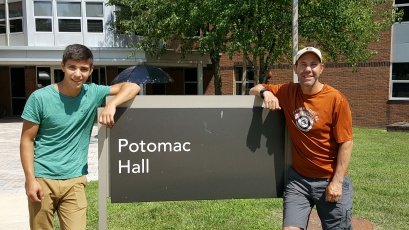Good Money
When I would tell people I got a new job to start a new career in another state and would be moving, one of the first questions they’d inevitably ask was, “How much will you be making?” Or, so as to be less crass, “Will you be making good money?”
In our competitive, capitalist, consumerist society, it is only natural that money is the first thing that comes to mind when someone accepts a new position. To be sure, why would anyone choose to move more than 500 miles and three states away for a job if not to make good money?
I had three answers for that question, and all had validity:
- Yes, of course I would be making good money, because there’s no such thing as bad money.
- No, I wouldn’t be making good money, compared to the much better money I had made in previous jobs.
- None of your friggin’ business what kind of money!
The answer is not simple. My job as a therapist under a two-year provisional license pays considerably less than my previous positions in public relations. I am at the entry level in the mental health field, where salaries and pay, though variable depending upon many factors, are relatively low compared to many other professions.
However, my job pays considerably more annually than the series of Gig Economy counseling internships and part-time and temporary jobs I had pieced together for the final two years of my counseling master’s degree program after leaving my full-time job. So viewed from that perspective, my new job does pay good money, and I’m grateful for that.
In midlife, we evaluate what we’ve already done and what we’d like to do with our remaining years, which no longer seem infinite. Priorities change, as we shift from the achievement-oriented, ladder-climbing, self-focused goals of younger adulthood to an increased desire to make a contribution to others, pursue meaningful activities and leave a legacy. My change to a career in counseling reflects the internal re-evaluations of the midlife transitional period.
When you realign priorities and make a significant change, there will be sacrifices. For me, one of those was money – good money. I knew that consequence of my decision from the start, when I embarked on the graduate program nearly six years before actually entering the counseling field. But I ignored that inescapable fact at the time.
Now that my new level of pay is a reality, I’m adjusting my life and budget to match. I may not yet qualify as a full-fledged Minimalist, but I’ve moved closer to that end of the scale in my spending, decision-making and thinking.
I don’t want to minimize the importance of making money – good money – or pretend I don’t care. It certainly helps in many ways and I always endeavored to make good money – at least the best I could in any given circumstance. I’d certainly rather be well-off and feel secure than poor and living anxiously paycheck to paycheck. Wouldn’t everyone? Fortunately, I have some financial cushion, enough to allow me to overcome the financial anxieties of making a career change, but far below some golden threshold to claim money doesn’t really matter.
But making ever more good money – however one defines it — isn’t the end-all be-all path to an ever more glorious Shangri-La, as a 2010 Princeton University study concluded. The Princeton researchers found that no matter how much more than $75,000 per year that a person earned, their “degree of happiness,” or emotional well-being did not increase. It also found that, though earning less than $75,000 in and of itself did not cause people to feel more unhappy, it did magnify and intensify negative feelings from life problems they had.
Beyond the practical realities of how I spend and the reduced margin of discretionary money available to save or burn compared to my previous work life, I’ve had to make a humbling mental adjustment: Here I am, in my 50s, peak earning years, with two graduate degrees, making less than half of what I made at my last full-time job, and less than or equivalent to many workers with much less education or years of experience than I have. Yet, I would still contend I am making good money, not bad money.
I gain fulfillment and a sense of purpose and contribution from counseling people and helping them improve their lives. Work is stimulating, rewarding and challenging, which I couldn’t always claim before. I look forward to my future in this new profession, and its many opportunities for learning, growth and entrepreneurship.
For those reasons, I know I can take this to the bank: I am making good money, with the promise of better money to come. When you truly enjoy what you are doing for a living and apply yourself with a passion because of that, the money naturally tends to follow. Good money.

 assignment teaching English in two French middle schools, her first professional job after graduating college. This will be her second tour abroad, following a semester in college in which she studied at the University of Lyon in Lyon, France, and traveled throughout Europe.
assignment teaching English in two French middle schools, her first professional job after graduating college. This will be her second tour abroad, following a semester in college in which she studied at the University of Lyon in Lyon, France, and traveled throughout Europe. teamwork and communications that comprise effective work environments; play a role in his maturation; and help him build a financial nest egg before launch into the adult world, all while he is still a teenager. That’s what Brown can do for me – and my 19-year-old son Daniel.
teamwork and communications that comprise effective work environments; play a role in his maturation; and help him build a financial nest egg before launch into the adult world, all while he is still a teenager. That’s what Brown can do for me – and my 19-year-old son Daniel.
 he opportunity to self-direct my future, embrace an entrepreneurial spirit, contribute value to society and work flexibly, creatively, collaboratively and independently. I explored life-coaching, completing a series of training courses, but ultimately didn’t pursue it. But the idea of
he opportunity to self-direct my future, embrace an entrepreneurial spirit, contribute value to society and work flexibly, creatively, collaboratively and independently. I explored life-coaching, completing a series of training courses, but ultimately didn’t pursue it. But the idea of  himself from the masses who hold college degrees, which no longer guarantee entry into the professional world, by going the STEM (Science, Technology, Engineering, Math) route and will find himself in demand in the job market. No post-college Parental Unit Domicile (PUD) basement-dwelling likely or necessary for him!
himself from the masses who hold college degrees, which no longer guarantee entry into the professional world, by going the STEM (Science, Technology, Engineering, Math) route and will find himself in demand in the job market. No post-college Parental Unit Domicile (PUD) basement-dwelling likely or necessary for him!